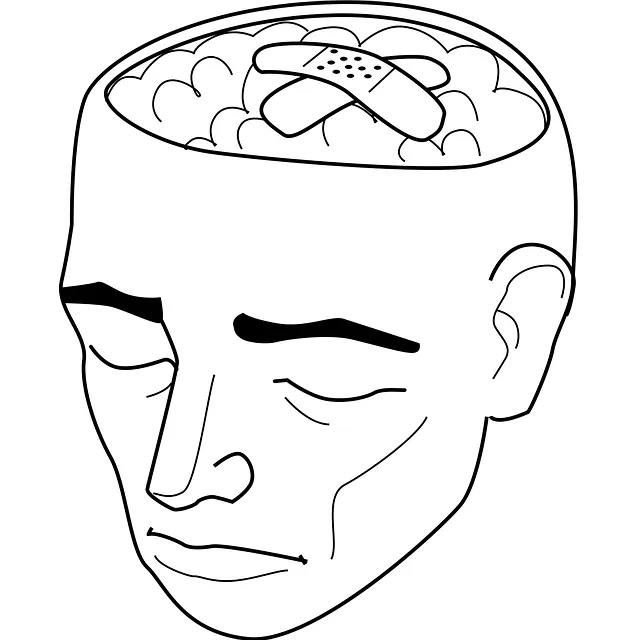Kaiser Permanente Colorado Springs faces challenges in accurately diagnosing mental illness due to subjective symptoms and cultural differences, but they overcome these obstacles with holistic approaches like symptom journaling, stress workshops, and AI-assisted diagnostic tools. Their Mental Wellness Coaching Programs and Trauma Support Services ensure precise diagnoses and tailored interventions. By integrating innovative strategies and best practices, Kaiser provides high-quality therapy, making it a top choice for individuals seeking accurate mental health assessments in Colorado Springs, including those looking for good therapists in the area.
Mental illness diagnosis accuracy is a critical aspect of patient care, yet it remains a challenging area. This article explores efforts to enhance diagnostic services, focusing on innovative strategies employed by organizations like Kaiser Permanente Colorado Springs. We delve into their unique approach, along with emerging tools and metrics for measuring success. Understanding current challenges and examining real-world examples like Kaiser’s practices can shed light on how to improve diagnosis accuracy, ensuring better outcomes for individuals seeking mental health support, including those with therapists in Colorado Springs.
- Understanding the Current Challenges in Mental Illness Diagnosis Accuracy
- Kaiser Permanente Colorado Springs: Their Approach to Enhancing Diagnostic Services
- Innovative Strategies and Tools for Improving Diagnosis Accuracy
- Measuring Success: Evaluating the Effectiveness of Improved Diagnosis Efforts
Understanding the Current Challenges in Mental Illness Diagnosis Accuracy

The diagnosis of mental illness is a complex process that involves multiple factors, making accuracy a significant challenge. In many cases, individuals in Colorado Springs seeking therapy through providers like Kaiser may face difficulties in receiving accurate assessments. This can be attributed to various reasons, including the subjective nature of mental health symptoms, which often vary greatly from person to person. The vast spectrum of disorders and their overlapping manifestations adds complexity, making it hard for therapists to pinpoint specific conditions without thorough evaluation.
Furthermore, cultural differences play a crucial role in diagnosis. Different ethnic and racial backgrounds may exhibit unique presentations of mental illness, requiring culturally sensitive approaches. Self-Care Routine Development for Better Mental Health is one aspect that can enhance diagnosis accuracy. Encouraging patients to maintain detailed journals of their symptoms, thoughts, and behaviors allows therapists to track progress and identify patterns over time. Additionally, Mental Health Policy Analysis and Advocacy is essential in ensuring accessible and effective treatment options, which can improve overall diagnosis quality. Stress Management Workshops Organization could also be a game-changer, empowering individuals with tools to recognize and manage early signs of mental health struggles, thus promoting proactive seeking of professional help.
Kaiser Permanente Colorado Springs: Their Approach to Enhancing Diagnostic Services

Kaiser Permanente Colorado Springs stands out for its commitment to enhancing mental health diagnostic services. They prioritize a holistic approach, integrating various therapeutic modalities and support programs to cater to diverse patient needs. Their team comprises skilled therapists who employ evidence-based practices alongside positive thinking techniques to offer comprehensive care.
This healthcare provider has developed innovative Mental Wellness Coaching Programs and enhanced Trauma Support Services, ensuring patients receive tailored interventions. By fostering an environment that encourages open dialogue, Kaiser Permanente Colorado Springs aims to improve diagnosis accuracy while promoting mental wellness for all individuals seeking their services. The focus on continuous development ensures that their therapists stay at the forefront of industry best practices, addressing the unique challenges faced by those struggling with mental illness in a supportive setting.
Innovative Strategies and Tools for Improving Diagnosis Accuracy

In the quest for enhancing mental illness diagnosis accuracy, innovative strategies and tools are transforming the landscape of healthcare in Colorado Springs. Organizations like Kaiser, known for its high-quality services, is at the forefront of these advancements. They employ cutting-edge technology, such as AI-assisted diagnostic platforms, to support therapists and improve assessment precision. These digital tools analyze vast amounts of patient data, including symptoms, medical history, and behavioral patterns, providing comprehensive insights that aid in more accurate diagnoses.
Furthermore, Kaiser encourages self-care practices and integrates mood and stress management workshops within their organization. Such initiatives empower individuals to actively participate in their mental well-being. Regular sessions focused on these aspects can complement traditional therapy and enhance overall diagnosis accuracy by considering the patient’s holistic health. This approach not only benefits individuals seeking therapy but also ensures a more comprehensive support system in Colorado Springs.
Measuring Success: Evaluating the Effectiveness of Improved Diagnosis Efforts

Measuring success in mental illness diagnosis accuracy improvement efforts is paramount to understanding what strategies truly resonate with patients and healthcare providers alike. Organizations like Kaiser Permanente Colorado Springs, renowned for its high-quality therapists, employ robust evaluation frameworks that go beyond mere numbers. They assess patient outcomes, therapist feedback, and satisfaction rates, analyzing the impact on treatment plans and long-term mental health trajectories.
This comprehensive approach includes exploring aspects such as Empathy Building Strategies, which foster deeper connections between patients and therapists, enhancing communication and trust. Additionally, examining Mental Health Policy Analysis and Advocacy ensures that systemic barriers are addressed, enabling more equitable access to care. Crisis Intervention Guidance is also integrated into these evaluations, highlighting the importance of swift and effective support during acute episodes, ultimately contributing to better diagnosis accuracy and improved patient outcomes.
Mental illness diagnosis accuracy is a complex issue, but with dedicated efforts like those demonstrated by Kaiser Permanente Colorado Springs, significant improvements can be made. By employing innovative strategies and tools, healthcare providers can enhance their diagnostic capabilities, ensuring more effective treatment plans for patients. The success of these improved diagnosis efforts lies in measurable outcomes, reflecting better patient outcomes and increased satisfaction among those seeking mental health services. As such, continuing to invest in and refine these practices is crucial, especially with organizations like Kaiser leading the way, proving that does Kaiser have good therapists Colorado Springs can be answered affirmatively through their commitment to excellence.






